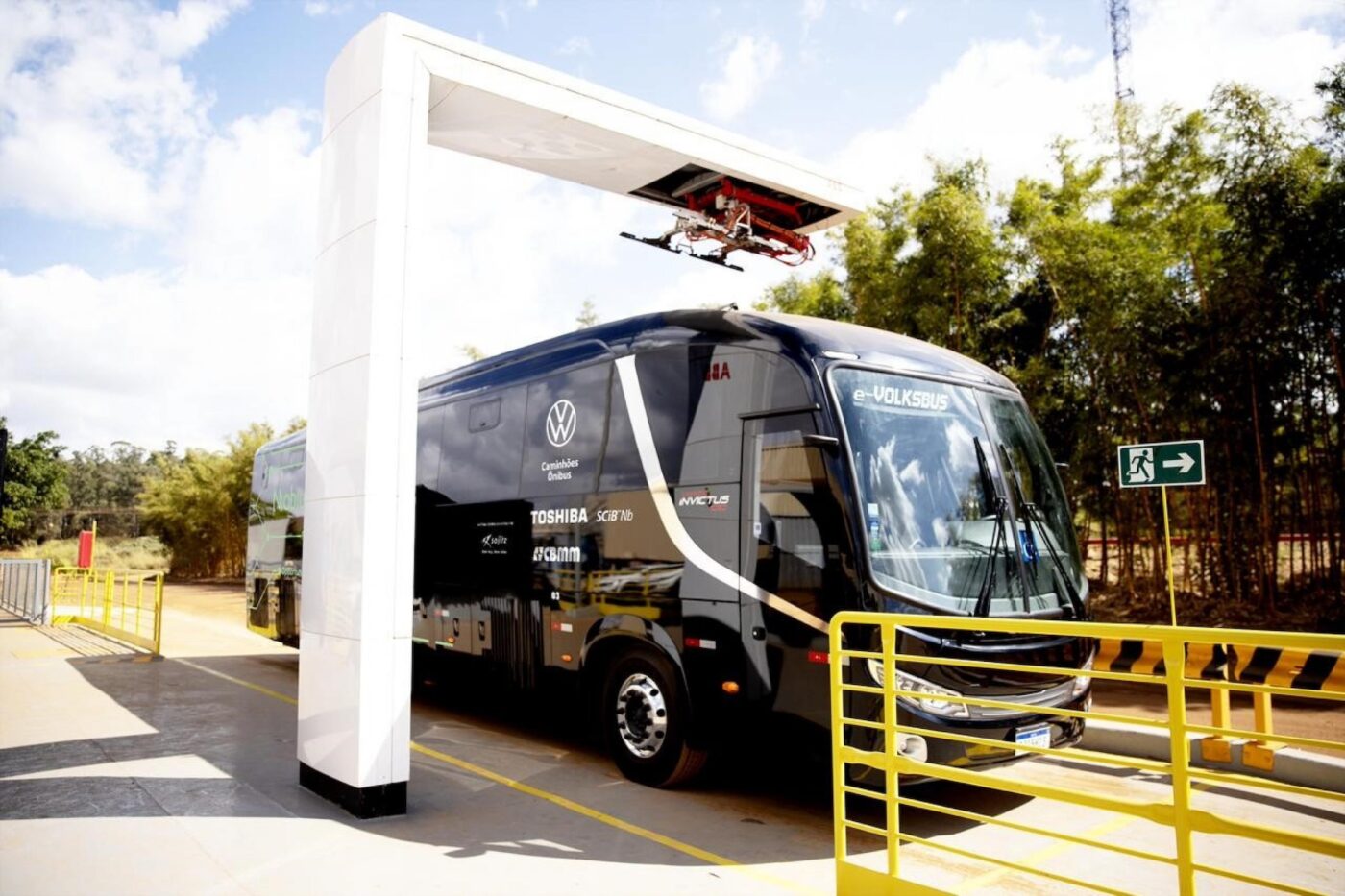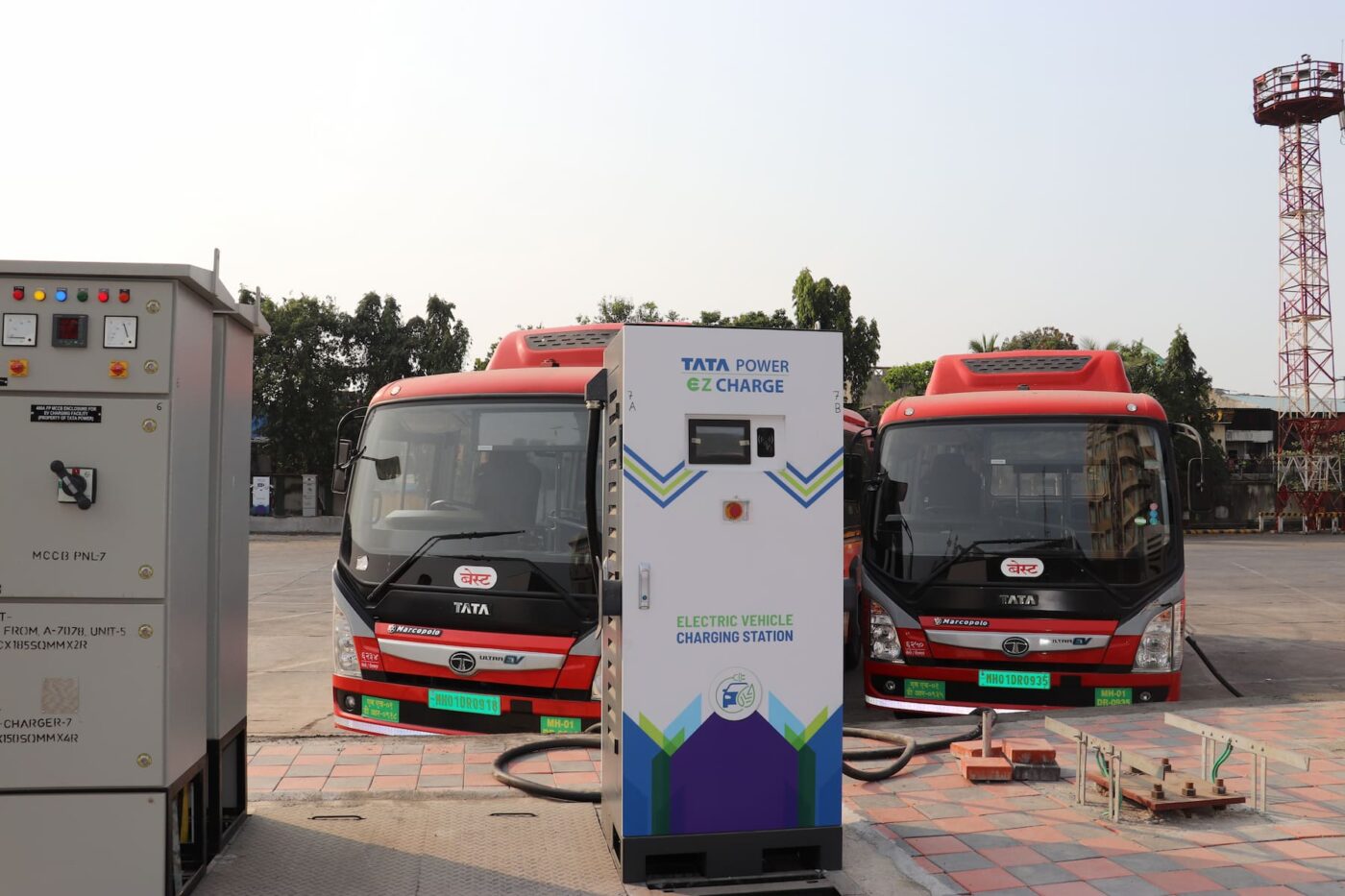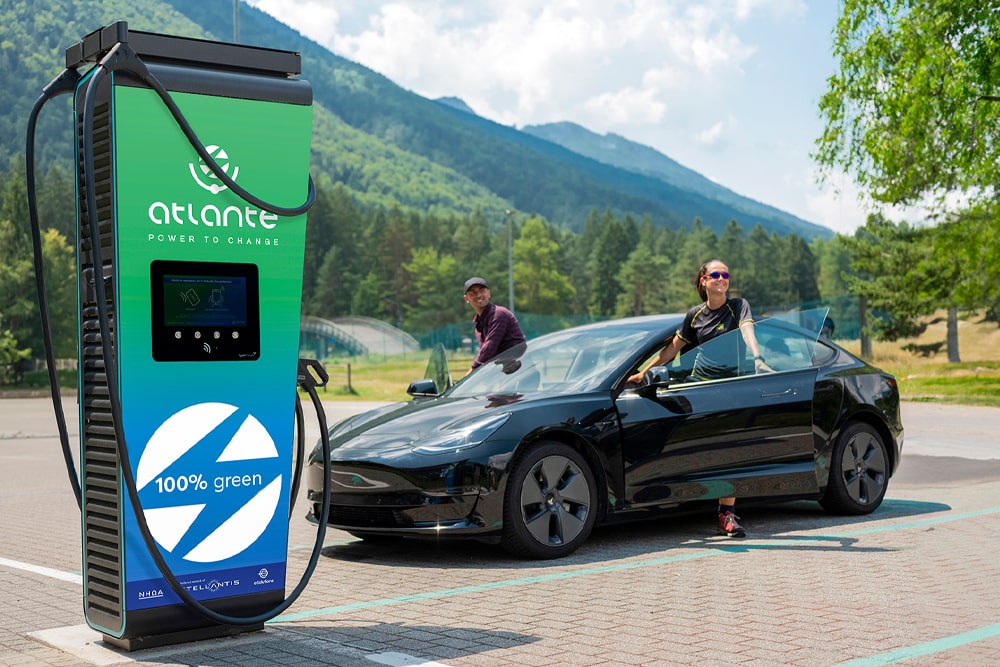Volkswagen Truck & Bus has revealed a prototype of an electric bus in Brazil featuring a battery technology that promises ultra-fast charging, thanks to the use of the heavy metal niobium to enrich a lithium-ion battery.
The collaboration between Volkswagen Truck & Bus, CBMM, and Toshiba has resulted in a battery that enables ultra-fast charging, with the vehicle’s maximum range achievable in just 10 minutes. The prototype, built on an 18-ton chassis, has an estimated range of 60 kilometers with a charging time of 10 minutes using a 300 kW pantograph. It is equipped with four lithium battery packs with a niobium anode, each with a usable capacity of up to 30 kWh.
Roberto Cortes, President and CEO of Volkswagen Truck & Bus, highlighted the strategic importance of this project, stating, “This project is strategic for us to start developing the next generations of electromobility.” He added, “Now, we are once again anticipating global trends and seeking to lead the transformation of the industry.”
The battery technology in the electric bus offers several advantages, including extremely fast charging, operation at milder temperatures, increased battery life and safety, and reduced energy consumption due to lower cooling requirements.
See also: Volkswagen’s Elli and Otovo Partner to Offer Integrated PV Systems and Wallboxes
CBMM, a Brazilian company specializing in niobium processing and technology, provides over 80% of the world’s supply of niobium metal and its alloys. The company has been working with Toshiba for six years to develop the NTO technology for the anode of lithium-ion battery cells. The partnership with Volkswagen Truck & Bus enabled the application of this technology in an electric bus, with the aim of validating and perfecting it for future commercialization.
The battery with NTO technology is expected to be available on the market in 2025, following further validation and testing. The collaboration marks a significant step in advancing the development of electromobility and highlights the potential of niobium-based battery technologies in the automotive industry.







